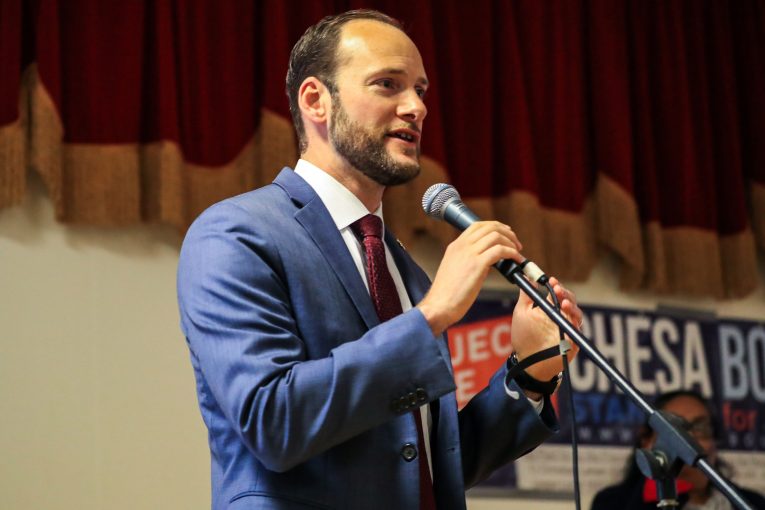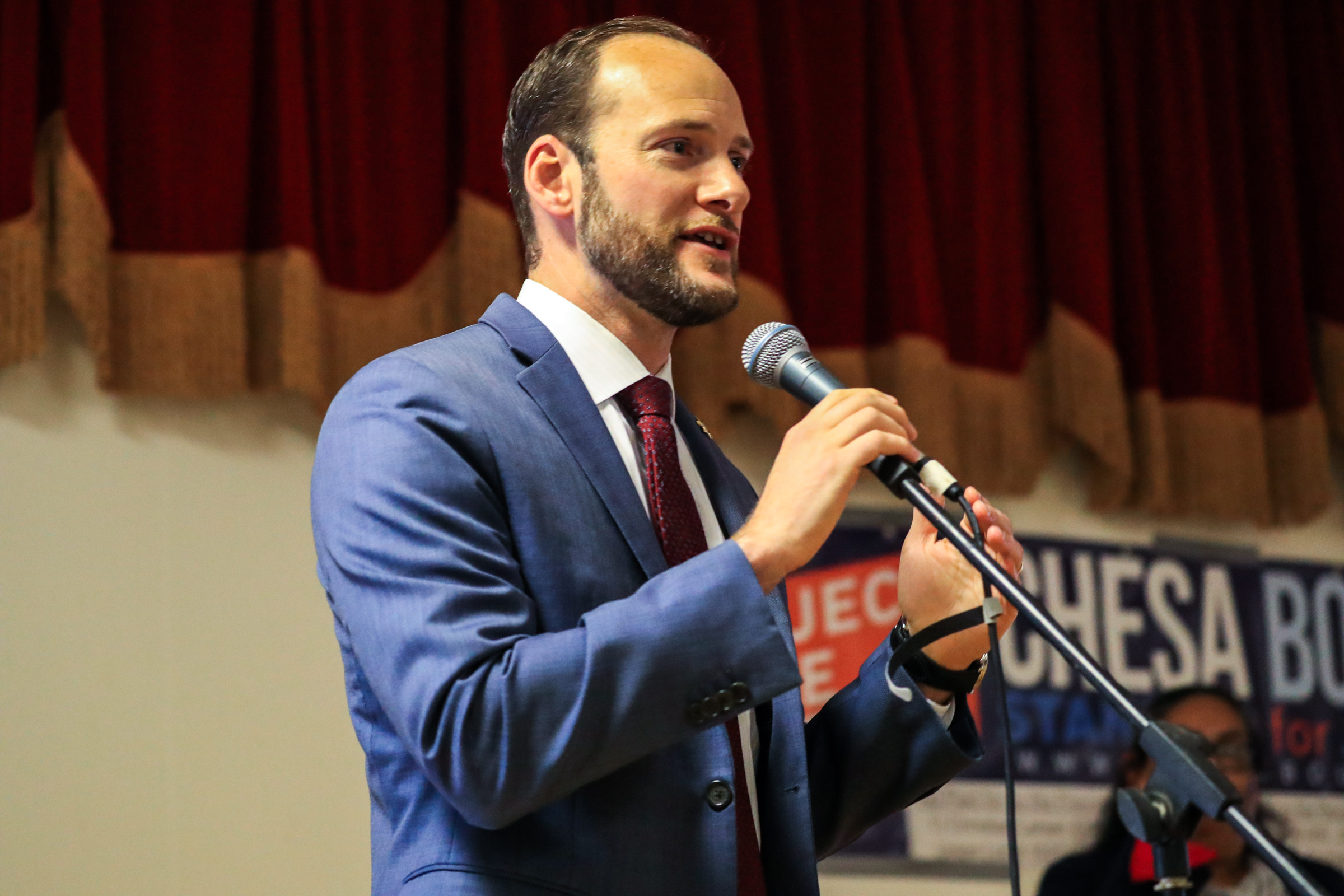
 By David M. Greenwald
By David M. Greenwald
Executive Editor
San Francisco, CA – On Thursday, San Francisco DA Chesa Boudin and his supporters kicked off a rally to oppose his recall. By Friday, his opponents turned in their signatures just ahead of Monday’s deadline. They need 55,000 valid signatures, their goal was 70,000, they turned in 83,000.
Even with a relatively high rate of disqualification that is endemic to paid signatures, it seems almost certain there will be a recall. Election officials have 30 days to qualify the matter for an election and then the election must be held within 120 days—although as we saw with the governor, it could be sooner. Still, we are looking at mid-March as the latest date.
Governor Newsom’s election results were finalized this week. He won by roughly the same margin as he did in 2018. Next Thursday, there will be a joint hearing by the Senate and Assembly Committees on Election chaired by Steve Glazer (Contra Costa) and Marc Berman (Menlo Park) and it seems likely there will be new rules for governor recalls.
That won’t impact this recall.
The data shows that San Francisco provided the governor his biggest margin, with a whopping 86 percent opposing the recall. The Bay Area was the strongest supporter with eight counties around the Bay as far south as Santa Cruz and north and east as Sonoma providing the biggest margin, at 71 percent  (Contra Costa) or higher.
(Contra Costa) or higher.
(Yolo County was at 68 percent, Solano at 63, and Sacramento at 60).
For their part, the supporters of Chesa Boudin hammered the Republican nature of this recall.
Former State Senator Mark Leno on Thursday challenged the signature total.
Leno said, “These pro-recall folks are going to brag about how many signatures they got to qualify this for the ballot.” But he pointed out, “They paid for it with over a million dollars of Republican money.”
He cited the group called Neighbors for a Better San Francisco, which he said was a state registered, not local, supposedly neighborhood PAC, “because then they don’t have to report their donors until 2020. 80 percent of all the money collected for the recall effort to date came from this PAC.”
Chesa Boudin doubled down on that.
“They have spent more than $1.4 million, just gathering signatures. Flying poor working people from around this country to San Francisco, because they don’t have the volunteers, that’s for sure they are paying them, their airfare, their hotel, and then a per signature.”
He added, “They have used every dirty trick in the book. They’re promising that before they’re done, they’re going to spend $5 million.”
The largest donors appear to have heavy money and Republican ties—and to the extent that Boudin and his supporters can turn this into a referendum on them, he might have a chance.
But drilling down into the numbers here shows that this is a tough battle for Boudin.
The opposition got 83,000—how many of those are valid will be an interesting question. How many of them will show up and vote and and are committed “yes” votes for the recall is another key question. But, for a moment, let us assume that 83,000 is the starting point for the recall campaign.
In the first round of the 2019 election, Chesa Boudin received 68,785. When the third and fourth place finishers votes were redistributed, he gained 15,000 votes, just enough to squeak to a narrow victory.
In that election there were just under 200,000 votes cast. At 83,000 that would be 41 percent of the 2019 turnout.
In November 2020, the number of voters was more than double that, however, at just under 450,000.
Biden got 85 percent, pretty close to Newsom’s percentage this year and Trump got 56,417 votes—12.72 percent of the vote total.
So, to put this another way, the recall campaign already got 27,000 more signatures than Donald Trump got votes in 2020.
Again, by the time they qualify the recall that number will go down, but the supporters of the recall who argue that this isn’t just a partisan race are correct. The Recall Petition already has more support than Trump did.
The campaign strategy rolled out by Boudin is probably correct—attack the money, attack the Republicans, tie the recall to Republican interests, and there is some truth to that, but it is not the full picture.
Boudin will also push back against the crime narrative, noting that statistics show that violent crime remains near generational lows, murders may be up, but they are really up in Oakland where there is a more traditional DA.
The Chronicle noted, “City leaders, including Breed and Boudin, have been careful to validate the concerns that some residents feel unsafe, while also trying to tamp down a narrative — at times echoed in the national press — that the city is lawless and dangerous.”
Moreover, Boudin should be wary that the reform movement is not a clean partisan split. Suzy Loftus was a Democrat. In Los Angeles, Jackie Lacey was a Democrat. And so, while there is a conservative-led pushback against criminal justice reform, there are definitely Democrats who support a more traditional approach to law enforcement.
The numbers here show this is a real threat—but as Governor Newsom showed in his recall, there is still time for him to change the narrative.


And to this day, Boudin is still avoiding use of restrooms in public places, lest he run into that reporter again. 🙂
Strange how this article nary a mentions non partisans.